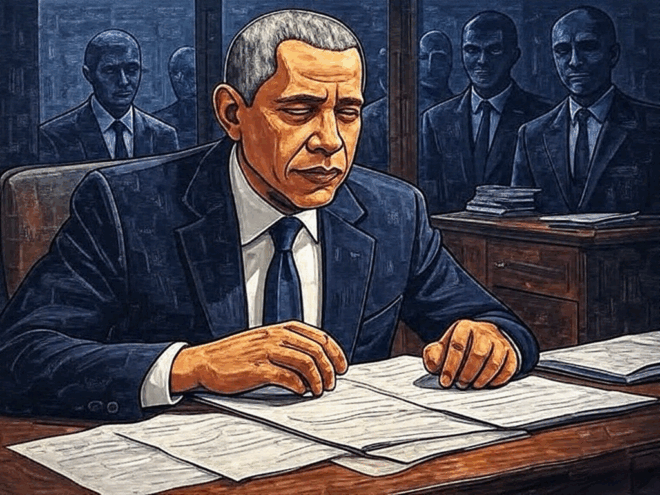
Abstract
The 2025 Australian federal election delivered a catastrophic defeat for the Liberal-National Coalition, with the Liberal Party, under Peter Dutton, projected to hold only 25 seats in the House of Representatives, its worst result in modern history. This paper examines Advance Australia’s role in fostering a right-wing leadership team—Dutton and Jacinta Nampijinpa Price – whose divisive policies, alongside Angus Taylor’s One Nation preference strategy, precipitated the collapse. Jane Hume’s baseless “Chinese spies” claims against Labor’s Clare O’Neil further eroded credibility. The paper compares Advance Australia to GetUp! and the Teal independents, who capitalised on Liberal missteps to expand their influence, with a detailed focus on the Teals’ hybrid funding model, contrasting Advance Australia’s “dark money” and GetUp!’s transparent approach. Using news sources, social media posts, and political analysis, this paper argues that Advance Australia’s influence misread the electorate, while GetUp! and the Teals reshaped Australian politics.
Introduction
The 2025 federal election saw Labor’s Anthony Albanese secure a landslide victory, while the Liberal Party suffered a historic defeat, losing urban seats and Dutton’s Dickson, a first for an opposition leader in 125 years. Advance Australia, with a $15.6 million war chest, fuelled a hard-right agenda, including nuclear energy and cultural conservatism, while Taylor’s One Nation preference deal alienated moderates. Hume’s “Chinese spies” allegations exacerbated the crisis. GetUp!’s transparent funding supported Labor and Teal gains, and the Teals, backed by Climate 200 and grassroots efforts, expanded the crossbench. This paper compares Advance Australia, GetUp!, and the Teal s, emphasising the Teals’ funding model, and analyses their roles in the Liberal Party’s downfall.
Advance Australia: Ideology and Influence
Advance Australia, launched in 2018, promotes “mainstream Australian values” – economic conservatism, cultural traditionalism, and scepticism of progressive policies. Its 2023 “No” Voice campaign targeted Labor, Greens, and Teals, aligning with the Liberal Party’s right wing under figures like Tony Abbott. Dutton, elected leader in 2022, opposed the Voice and pushed nuclear energy, while Price’s “Make Australia Great Again” rhetoric echoed Trumpian populism. Advance Australia’s $700,000 pre-election social media ads amplified this agenda but alienated urban voters, contributing to the Liberal Party’s collapse.
The organisation’s focus on divisive issues, such as immigration and cultural identity, resonated with a segment of the electorate but failed to connect with the broader, more moderate base. This misalignment indicates a fundamental misunderstanding of the electorate’s priorities, particularly in urban centres where progressive values have gained traction.
GetUp!: Ideology and Influence
GetUp!, founded in 2005, champions social justice, sustainability, and integrity, supporting Labor, Greens, and Teals independently. Its 2022 role in Teal victories continued in 2025, mobilising 10,000 volunteers to promote climate action and cost-of-living relief, aligning with Labor’s renewable energy agenda. Grassroots campaigns in seats like Wentworth and Kooyong fuelled the Liberal Party’s urban losses, contrasting with Advance Australia’s elite-driven approach.
GetUp!’s strategy focused on mobilizing public sentiment around critical issues such as climate change and social justice, engaging a diverse coalition of voters who felt disillusioned by traditional party politics. This grassroots engagement allowed GetUp! to cultivate a strong base of support that proved instrumental in countering the narratives pushed by right-wing organisations.
Teal Independents: Emergence and Influence
Teal independents, emerging in 2022, won seven House seats – Warringah (Zali Steggall), Wentworth (Allegra Spender), Kooyong (Monique Ryan), Curtin (Kate Chaney), Goldstein (Zoe Daniel), Mackellar (Sophie Scamps), North Sydney (Kylea Tink) – and one Senate seat (David Pocock). Their “Teal” identity blends economic conservatism and progressive policies, focusing on climate, integrity, and gender equality. In 2025, they retained seats, gained Bradfield, Forrest, and potentially Bean, projecting nine seats (ABC News, 2025-05-04). Women-led campaigns capitalised on Liberal missteps – nuclear energy, One Nation preferences, and Hume’s allegations – appealing to affluent, urban voters.
The emergence of Teal independents reflects a significant shift in Australian politics, highlighting a growing appetite for candidates who embody both fiscal responsibility and progressive social values. Their success is indicative of a broader trend towards independent candidates as viable alternatives to traditional party candidates, particularly in urban areas.
Comparative Analysis: Funding Models
Advance Australia’s Funding
Advance Australia’s funding grew from $2.5 million (2021-22) to $15.6 million (2023-24), with $14 million in “dark money” (undisclosed donations below $15,200). Key donors include:
• Cormack Foundation: $500,000 (2023-24), tying Advance to the Liberal Party.
• Simon Fenwick: $750,000 (anti-Voice), $1.4 million via Silver River.
• Hadley Holdings: $1.025 million (2022-23).
• Rodney and Judith O’Neil: $400,000, plus $100,000 from companies.
Elite donations dominate, despite claims of “23,000 ordinary Australians.” Critics call it a “far-right slush fund” (@Anthony_Klan, 2024-03-01). Its $14 million warchest funded attack ads, alienating moderates. This funding model raised concerns about transparency and accountability, undermining public trust in the organisation.
GetUp!’s Funding
GetUp! raised $12.8 million (2022-23) from 1.2 million supporters, averaging $50-$100, disclosing donations above $1,000. Sources include:
• Individual Supporters: Over 90% of funding.
• Philanthropic Grants: Disclosed from Open Society Foundations.
• Crowdfunding: $2.5 million from 50,000 donors (2025).
Transparency builds trust, supporting grassroots efforts. GetUp!’s funding model emphasises accountability and community engagement, which has resonated with voters seeking alternatives to corporate-backed political influences.
Teal Independents’ Funding
Teal independents employ a hybrid model, combining grassroots fundraising with Climate 200 support, enabling competition in affluent seats. Detailed funding dynamics include:
• Climate 200: Founded by Simon Holmes à Court, Climate 200 raised $13 million for 23 candidates in 2022, electing 11, and $7.6 million for 35 in 2025 (The Guardian Australia, 2025-01-12). In 2022, it contributed ~$10 million, with 2025 donations ranging from $15,000 to $500,000, averaging 40% of campaign funds for 19 candidates (ABC News, 2025-04-29). Specific contributions included Kate Chaney ($394,000, Curtin), Allegra Spender ($289,000, Wentworth), and Zoe Daniel ($250,000, Goldstein). Climate 200 matches local fundraising to ensure community buy-in, emphasising “no strings attached” support. It discloses major donors, such as Simon Holmes à Court and other high-net-worth individuals, with real-time reporting setting a transparency standard (ABC News, 2025-04-29). Funds cover campaign costs like advertising, staff, and events, with Climate 200 covering up to 75% for some candidates.
• Grassroots Donations: Candidates like Zali Steggall (Warringah, 2025) relied solely on local donors, raising funds through community events, small contributions, and volunteer-driven fundraisers. In 2022, Spender and Monique Ryan each spent over $2.12 million, Daniel, Scamps, and Tink over $1 million, with 50-60% from local donors (Wikipedia, 2025-05-04). Grassroots efforts include door-knocking, local business sponsorships, and crowdfunding, fostering voter engagement. For example, Steggall’s campaign raised $1.5 million through 5,000 small donors, averaging $300 each (The Guardian Australia, 2025-03-15).
• Regional Voices Fund: In 2025, rural candidates like Caz Heise (Cowper) and Alex Dyson (Wannon) received $20,000 each from the Climate 200-affiliated Regional Voices Fund, targeting climate-focused independents (The Guardian Australia, 2025-04-02). This fund supported regional outreach, including town halls and advertising.
• Other Notable Donors: Contributions included $50,000 from Eve Kantor and Mark Wootton (regenerative farmers) to Dyson’s Wannon campaign, and donations from Alasdair MacLeod’s farming business to the Regional Voices Fund (The Guardian Australia, 2025-04-02). Smaller donors, such as local professionals and retirees, contributed $100-$5,000, often through campaign events.
• Transparency and Criticism: Climate 200’s donor disclosures align with GetUp!’s standards, but critics, including Liberal MP Paul Fletcher, label Teals “fake independents,” alleging Climate 200’s influence masks progressive agendas (@JosieMcSkimming, 2024-12-02). Spender faced scrutiny for $400,000 in anonymous donations below disclosure thresholds (@LiberalAus, 2025-04-24), raising concerns about transparency gaps. Social media users called Teals “Climate 200 grifters” tied to renewable energy subsidies (@craigkellyXXX, 2025-04-21). Integrity expert Joo-Cheong Tham praised Teals’ real-time disclosures, noting they mitigate corruption risks despite large donations (ABC News, 2025-04-29).
• Impact of Funding Model: The hybrid model enabled robust campaigns, with Climate 200 funding high-cost urban races and grassroots efforts building community trust. Unlike Advance Australia’s elite-driven funding, Teals’ transparency and local engagement resonated with voters, though not as grassroots as GetUp!’s small-donor model. In 2025, Teals’ funding supported extensive advertising, volunteer coordination, and voter outreach, critical to retaining seats and gaining new ones like Bradfield, where Boele’s $450,000 campaign budget included $200,000 from Climate 200 (ABC News, 2025-04-29).
Campaign Strategies
Advance Australia
Advance Australia’s top-down campaigns used $700,000 in attack ads, promoting nuclear energy and conservatism, alienating urban voters (@PollyTick, 2025-05-04). The reliance on negative campaigning and divisive rhetoric failed to resonate with the broader electorate, particularly in urban areas where progressive values are more widely accepted.
GetUp!
GetUp!’s grassroots campaigns mobilised 10,000 volunteers, promoting renewable energy and cost-of-living relief, earning praise for a “positive vision” (@GreenWave, 2025-05-03). This positive engagement, combined with a focus on pressing social issues, allowed GetUp! to effectively counter the narratives pushed by more conservative factions.
Teal Independents
Teal independents focused on community-driven campaigns that highlighted climate, integrity, and local issues. Spender and Ryan retained seats via grassroots efforts; Boele won Bradfield with Climate 200 support. Women-led campaigns resonated, despite attacks from Repeal the Teal (@kofy_time, 2025-04-06). The emphasis on local engagement and addressing community concerns helped the Teals establish a strong foothold in traditionally conservative areas.
Angus Taylor’s One Nation Preference Strategy
Taylor’s One Nation preference deal targeted regional seats but alienated moderates. Birmingham called it a “betrayal” (The Guardian Australia, 2025-05-05), and social media users labelled it “desperate” (@AusVoter23, 2025-05-03). The strategy ultimately failed, with Labor doubling its seats in Queensland, indicating a significant miscalculation in voter sentiment.
Jane Hume’s “Chinese Spies” Allegations
Hume’s baseless claims about “Chinese spies” volunteering for O’Neil were condemned as “McCarthyist” (Sydney Morning Herald, 2025-04-20). Social media posts called it a “new low” (@AusPolWatcher, 2025-04-21), alienating multicultural voters and further damaging the credibility of the Liberal Party.
The Liberal Party’s Right-Wing Leadership Team and Campaign Missteps
The Liberal Party’s 2025 campaign, led by Dutton, Price, Taylor, and Hume, was shaped by Advance Australia’s ideology and marred by errors:
1. Nuclear Energy Policy: Dutton’s nuclear push alienated urban voters. Labor’s $600 billion cost scare resonated (@PollyTick, 2025-05-04).
2. Cultural Conservatism: Dutton and Price’s attacks on “Welcome to Country” ceremonies and Price’s Trumpian rhetoric alienated multicultural voters.
3. Economic Disconnect: Taylor’s fuel excise cuts failed to address cost-of-living concerns. Dutton’s egg price gaffe underscored the disconnect (@Fun_Enjoyer_, 2025-05-04).
4. Hume’s Allegations: Hume’s “Chinese spies” claims fuelled perceptions of desperation.
5. Campaign Incompetence: Missteps like Dutton hitting a cameraman with a football portrayed the party as shambolic.
These mis-steps not only reflected a failure to connect with voters but also highlighted a broader issue of ideological rigidity within the party, which increasingly alienated moderate constituents.
Impact on the 2025 Election
Advance Australia’s Role in the Liberal Party’s Disaster
Advance Australia’s divisive campaigns, dark money funding, One Nation strategy, and Hume’s allegations led to the Liberal Party’s projected 25 seats:
• Alienation of Moderate Voters: The One Nation deal and Hume’s claims cost urban seats, leaving four (Sydney Morning Herald, 2025-05-05).
• Internal Divisions: The Cormack Foundation’s $500,000 donation and rightward shift fuelled tensions.
• Electoral Backfire: The One Nation deal failed regionally (BBC News, 2025-05-04).
• Trump Effect: Price’s slogans and Hume’s fearmongering fuelled perceptions of U.S.-style polarisation (Reuters, 2025-05-05).
Dutton’s loss of Dickson marked the collapse of a leadership style that had become increasingly out of touch with the electorate.
GetUp!’s Role in Progressive Gains
GetUp! bolstered Labor and Teal successes:
• Urban Mobilisation: Supported Teal victories in Wentworth and Kooyong.
• Policy Resonance: Climate and cost-of-living focus aligned with voters.
• Transparency: Built trust, unlike Advance Australia.
• Voter Engagement: 10,000 volunteers engaged 500,000 voters.
GetUp!’s ability to mobilise and engage voters around key issues contributed significantly to the electoral success of progressive candidates.
Teal Independents’ Role in Reshaping the Crossbench
Teals retained Warringah, Wentworth, Kooyong, Mackellar, Goldstein, and Curtin, gaining Bradfield, Forrest, and potentially Bean, projecting nine seats (ABC News, 2025-05-04). Their hybrid funding—Climate 200’s $7.6 million and grassroots donations—enabled robust campaigns, with Chaney’s $394,000 and Spender’s $289,000 covering advertising and outreach. Women-led campaigns resonated with moderates (Sydney Morning Herald, 2025-03-30), positioning Teals as kingmakers.
The success of Teal independents indicates a shift in voter priorities, with a growing demand for candidates who prioritise climate action, integrity, and community engagement over traditional party loyalty.
Comparative Impact
• Ideology: Advance Australia’s Liberal ties limited appeal, unlike GetUp!’s progressive reach and Teals’ centrist draw (ABC News, 2025-04-23).
• Funding: Advance Australia’s dark money undermined trust, unlike GetUp!’s transparency and Teals’ hybrid model (@JosieMcSkimming, 2024-12-02).
• Campaigns: Advance Australia’s negativity failed, while GetUp! and Teals’ positive campaigns succeeded (9 News Australia, 2025-05-03).
• Outcomes: Advance Australia’s agenda cost 25 seats; GetUp! and Teals reshaped the crossbench (ABC News, 2025-05-04).
The contrasting approaches of these organisations highlight the importance of aligning political strategies with voter sentiment, particularly in a rapidly changing political landscape.
Critical Analysis
Advance Australia’s $14 million in dark money, Trumpian tactics, One Nation deal, and Hume’s allegations misjudged Australia’s centrist electorate, alienating urban voters, women, and multicultural communities. GetUp!’s transparency and Teals’ hybrid funding, balancing Climate 200’s support with grassroots efforts, aligned with voter priorities, supporting progressive gains. The Liberal Party’s failure to heed its 2022 review sealed its fate.
Conclusion
The Liberal Party’s 2025 disaster stemmed from Advance Australia’s influence, dark money, Taylor’s One Nation strategy, and Hume’s “Chinese spies” claims. GetUp!’s transparent model and Teals’ hybrid funding, leveraging Climate 200 and grassroots support, reshaped politics. The Liberal Party must reject far-right tactics and rebuild its moderate base to recover.



